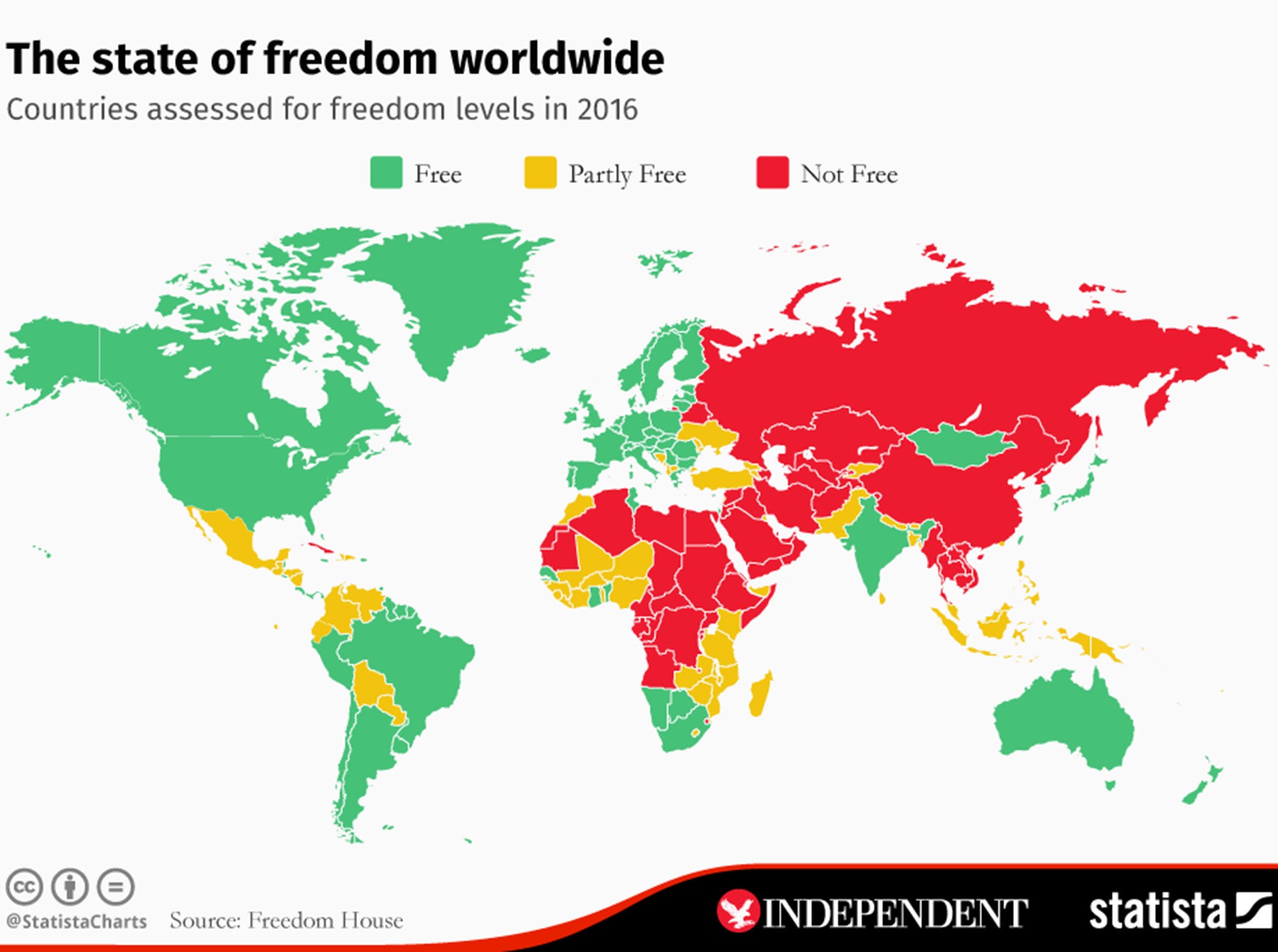The map that shows most and least free countries in the world
Freedom is in decline across the world

The world's most suppressed countries have been named after a watchdog ranked them according their level of freedom.
Democracy watchdog organisation Freedom House released its annual list alongside the conclusion that "global freedom is under pressure".
Its findings are presented in the map above, produced for The Independent by statistics agency Statista.
The group uses standards enshrined in the 1948 Universal Declaration of Human Rights, focusing on the political rights and civil liberties of individuals.
It applies them across the world "irrespective of geographical location, ethnic or religious composition, or level of economic development."
The countries are ranked as free, partly free or not free.
However, the tumultuous events of 2015 have "contributed to the 10th consecutive year of decline in global freedom," according to the report.
Perhaps the most significant single factor is the Syria crisis, which has continued to escalate and become more complex, involving numerous proxy powers. It has also led to an unprecedented refugee crisis hitting Europe, which has in turn caused a resurgence of far right sentiment in the region.
The lack of an effective strategy to resolve the crisis "betrayed a worrying lack of self-confidence and conviction" in the leading democracies, said Freedom House.
This was reinforced by the claim that the elections and legislative process in the US "have suffered from an increasingly intricate system of gerrymandering and undue interference by wealthy individuals and special interests."
It also raised concern over the apparent widening of racial and ethnic divisions in the US.
Economic pressures have also contributed to the decline in freedom. In China, the economic slowdown contributed towards "harsh campaigns against dissent and a renewed emphasis on the Communist Party’s leadership in political, social, and economic life.” These measures more than offset the modest reform measures which also took place in 2015, according to the report.
The falling price of oil has threatened many 'petro-states' dependent on oil output.
"Wary of spending cuts, declining living standards, and the social unrest they could cause, most of these regimes cracked down on rights activists and other critics," said the report.
For Saudi Arabia and its Gulf state allies, participation in proxy conflicts, such as the war in Yemen, and influence over repressive regimes, such as in Egypt, has continued.
In Iran, where economic prospects are improving following the lifting of sanctions following the nuclear deal, hard-line elements of the regime have worked to "smother public expectations that it would lead to a more open society," the report said.
The fall in oil prices has also affected Russia, hurting it further following sanctions imposed on it over the Ukraine crisis. Freedom House said the country's government had used its "high-volume propaganda apparatus" to clamp down on voices critical of its overseas military actions.
In Latin America, gang and political violence and endemic corruption continue to grip many countries. Violence and civil unrest has caused many governments, such as that of of President Maduro in Venezuela, to resort to repressive measures, the report said.
Join our commenting forum
Join thought-provoking conversations, follow other Independent readers and see their replies
Comments
Bookmark popover
Removed from bookmarks